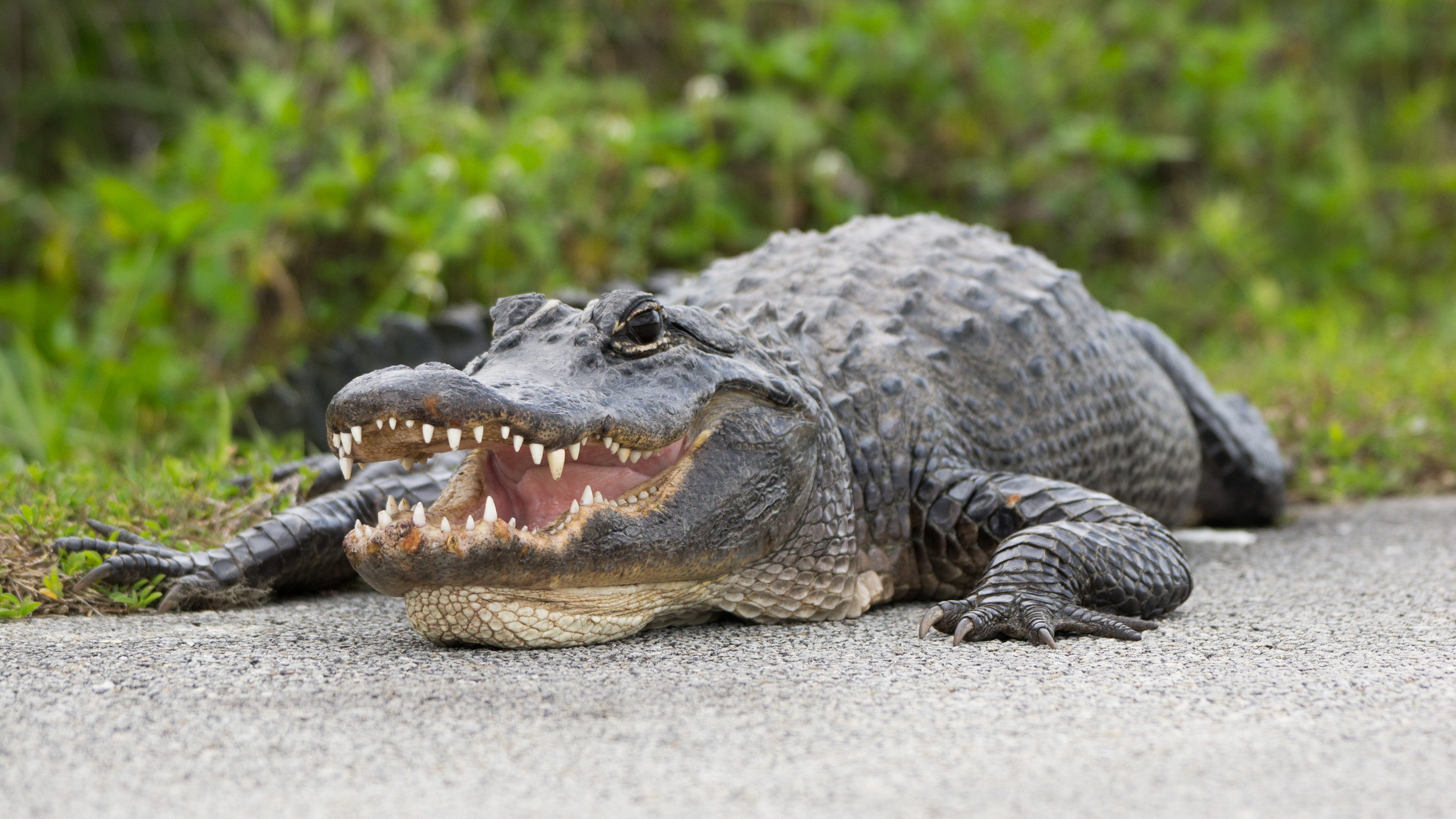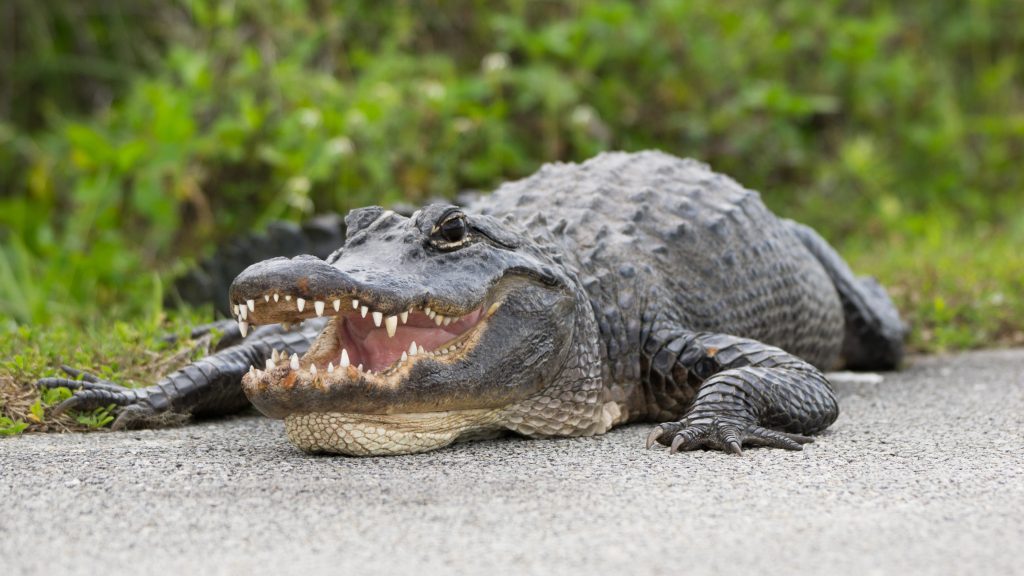Alligator attacks have become a hot topic in recent years, with more and more incidents reported every year. These terrifying events have left many people wondering just how common alligator attacks really are. Are they a rare occurrence, or do they happen more often than we think?
To answer that question, we need to examine the facts. While alligator attacks are relatively rare, they do happen more often than many people realize. In fact, Florida alone sees an average of seven alligator attacks per year, with other states like Texas and Louisiana also reporting incidents. So, just how common are alligator attacks? Let’s dive in and find out.
Alligator attacks are rare, with an average of six fatalities per year in the United States. However, attacks can happen in any body of water where alligators live, including lakes, rivers, and even swimming pools. To reduce the risk of an alligator attack, it is important to follow safety guidelines, such as not feeding alligators, keeping a safe distance, and being aware of your surroundings.

How Common Are Alligator Attacks?
Alligator attacks are a rare occurrence, but they do happen. These attacks can be fatal and are often in the news when they occur. It is important to understand the prevalence of alligator attacks and how to stay safe in areas where alligators are present.
1. Alligator Attacks in the United States
Alligator attacks are most common in the southeastern United States, particularly in Florida and Louisiana. According to the Florida Fish and Wildlife Conservation Commission, there have been 401 documented alligator attacks in Florida since 1948, with 25 of them resulting in fatalities. In Louisiana, there have been 34 alligator attacks since 2010, with one fatality.
It is important to note that these numbers represent alligator attacks on humans, which are relatively rare. Alligators are more likely to attack pets or livestock.
2. Alligator Behavior
Alligators are cold-blooded reptiles that are found in freshwater habitats such as lakes, rivers, and swamps. They are ambush predators and will often lie in wait for prey to come near before attacking. Alligators are most active at night and during the early morning and late afternoon.
It is important to remember that alligators are wild animals and should be treated with caution and respect. Never approach an alligator, and always keep a safe distance.
3. Alligator Safety Tips
If you live in an area where alligators are present, there are several things you can do to stay safe. First and foremost, never feed alligators. Feeding alligators can cause them to lose their natural fear of humans and become more aggressive.
Other safety tips include:
– Keep pets on a leash and away from the water’s edge
– Do not swim in areas where alligators are present
– Stay away from alligator nests and baby alligators
– Do not approach alligators, even if they appear to be docile
4. Alligator Vs Crocodile
Alligators and crocodiles are often confused for one another, but there are distinct differences between the two. Alligators have a wider, U-shaped snout, while crocodiles have a more V-shaped snout. Alligators are also typically found in freshwater habitats, while crocodiles are found in both freshwater and saltwater environments.
In terms of behavior, alligators are less aggressive than crocodiles and are more likely to retreat from humans. However, both alligators and crocodiles should be treated with caution and respect.
5. Alligator Attacks on Humans
Alligator attacks on humans are rare, but they can be fatal. Most alligator attacks occur when humans enter the water or get too close to an alligator. In some cases, alligators may mistake humans for prey, especially if they are small or moving quickly.
If you are attacked by an alligator, fight back with everything you have. Alligators have a very powerful bite, and it may be difficult to escape once they have hold of you.
6. Alligator Attacks on Pets
Alligators are more likely to attack pets than humans. Small dogs and cats are particularly vulnerable to alligator attacks, as they are often mistaken for prey. If you live in an area where alligators are present, keep your pets on a leash and away from the water’s edge.
7. Alligator Attacks on Livestock
Alligators are also known to attack livestock such as cows and horses. These attacks can be devastating for farmers and ranchers, as they can result in the loss of valuable animals. If you have livestock in an area where alligators are present, take steps to protect them, such as fencing them off from bodies of water.
8. Alligator Conservation
Alligators were once on the brink of extinction due to hunting and habitat destruction. However, thanks to conservation efforts, alligator populations have rebounded in many areas. Alligators are now protected under federal law, and it is illegal to hunt or kill them without a permit.
Conservation efforts have also led to the creation of alligator farms, where alligators are raised for their meat and skins. These farms help to reduce the demand for wild-caught alligators and provide a sustainable source of income for farmers.
9. Benefits of Alligators
Alligators play an important role in their ecosystems. They help to control populations of fish and other aquatic animals, and their nests provide habitat for other species. Alligator meat and skins are also a valuable resource for humans.
10. Conclusion
Alligator attacks are a rare occurrence, but they do happen. It is important to understand the behavior of alligators and to take precautions to stay safe in areas where alligators are present. Remember to never approach an alligator, never feed an alligator, and always keep a safe distance.
Frequently Asked Questions
Below are some frequently asked questions about alligator attacks.
What is the likelihood of being attacked by an alligator?
The likelihood of being attacked by an alligator is very low. According to the Florida Fish and Wildlife Conservation Commission, the odds of being seriously hurt or killed by an alligator are about one in 3.2 million. Alligator attacks are extremely rare and typically occur only when humans encroach on their habitat or provoke them.
However, it is important to be aware of the risks if you are in an area known to have alligators. Avoid swimming or wading in bodies of water where alligators are known to live, and never approach or feed an alligator.
Where do most alligator attacks occur?
Most alligator attacks occur in Florida, where alligators are abundant and human populations are high. According to the Florida Fish and Wildlife Conservation Commission, Florida has averaged about seven unprovoked alligator bites per year over the past decade.
However, alligator attacks can occur in other parts of the southeastern United States as well, including Louisiana, Texas, and South Carolina. It is important to be aware of the risks if you are in an area known to have alligators.
What should I do if I encounter an alligator?
If you encounter an alligator, it is important to give it plenty of space and avoid provoking it. Do not approach or attempt to feed the alligator, and do not swim or wade in bodies of water where alligators are known to live.
If the alligator is blocking your path or posing a threat to you or others, it is best to call a professional alligator trapper to safely remove the animal.
How can I stay safe from alligator attacks?
To stay safe from alligator attacks, it is important to be aware of the risks if you are in an area known to have alligators. Avoid swimming or wading in bodies of water where alligators are known to live, and never approach or feed an alligator.
If you do encounter an alligator, give it plenty of space and do not provoke it. If an alligator is posing a threat to you or others, call a professional alligator trapper to safely remove the animal.
What should I do if I am attacked by an alligator?
If you are attacked by an alligator, your best chance of survival is to fight back aggressively. Target the sensitive areas of the alligator, such as its eyes, nose, and ears. Use any available weapons, such as sticks or rocks, to defend yourself.
After the attack, seek medical attention immediately. Alligator bites can be serious and may require medical treatment, including antibiotics and surgery.
How To Survive An Alligator Attack
In conclusion, alligator attacks may be rare occurrences, but it is still important to take precautions when in areas where alligators are known to inhabit. By understanding their behavior and avoiding certain activities, such as swimming in murky waters or approaching their nests, you can greatly reduce the risk of an attack.
It is also important to note that alligator attacks can have devastating consequences, both for the victim and the alligator. By respecting these creatures and their habitats, we can coexist peacefully and avoid these tragic incidents.
Overall, while alligator attacks may be uncommon, it is always better to err on the side of caution and take steps to avoid potential danger. By being aware of the risks and taking preventative measures, we can continue to enjoy the beauty and wonder of these magnificent creatures without putting ourselves or others in harm’s way.


